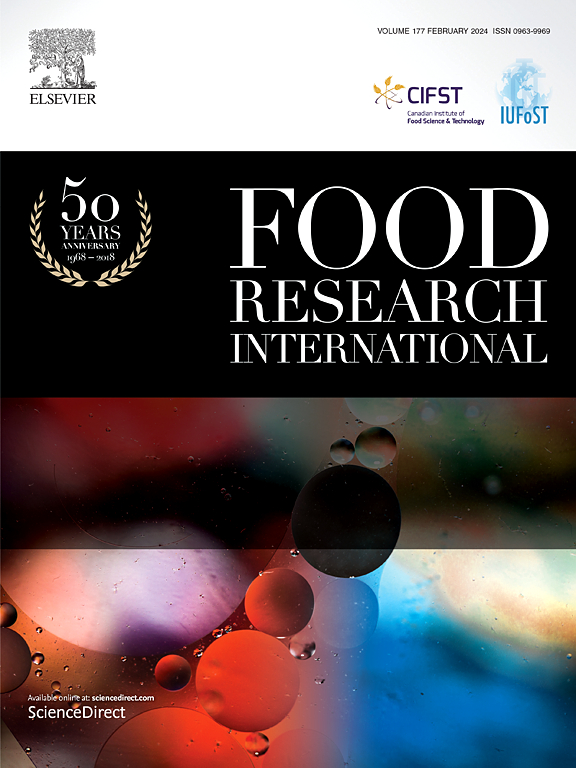Synbiotics of encapsulated Limosilactobacillus fermentum K73 promotes in vitro favorable gut microbiota shifts and enhances short-chain fatty acid production in fecal samples of children with autism spectrum disorder
IF 7
1区 农林科学
Q1 FOOD SCIENCE & TECHNOLOGY
引用次数: 0
Abstract
Modulation of the gut microbiota has emerged as a promising approach for addressing the gastrointestinal and neurodevelopmental symptoms associated with autism spectrum disorder (ASD). Consequently, this study aimed to evaluate the impact of four formulated synbiotics comprising Limoscilactobacillus fermentum K73, high-oleic palm oil and whey, on the gut microbiota composition of Colombian children with and without ASD. These components were encapsulated through high-shear emulsification and spray drying. The four synbiotics and their individual components were subjected to in vitro digestion and fermentation using samples of Colombian children gut microbiota. Short-chain fatty acids (SCFAs), including lactic, acetic, propionic, and butyric acids, were quantified using HPLC-DAD, while serotonin was determined by an ELISA kit after in vitro fermentations. Changes in microbial structure were assessed by the sequencing of the 16S rRNA gene via next-generation sequencing (NGS). The results revealed a decrease in the abundance of genera like Bacteroides and Dorea in ASD-associated samples after the treatment with the synbiotics. Conversely, an increase in the relative abundance of probiotic-related genera, including Lactobacillus, Streptococcus, and Anaerostipes, was observed. Furthermore, the analysis of SCFAs and serotonin indicated that the synbiotic intervention resulted in an elevated butyric acid and microbial serotonin synthesis, alongside a decrease in propionic acid, which is changes considered beneficial in the context of ASD. This evidence suggests that synbiotics of L. fermentum K73 could represent a promising live biotherapeutic strategy for modulating the gut microbiota of children with ASD.

求助全文
约1分钟内获得全文
求助全文
来源期刊

Food Research International
工程技术-食品科技
CiteScore
12.50
自引率
7.40%
发文量
1183
审稿时长
79 days
期刊介绍:
Food Research International serves as a rapid dissemination platform for significant and impactful research in food science, technology, engineering, and nutrition. The journal focuses on publishing novel, high-quality, and high-impact review papers, original research papers, and letters to the editors across various disciplines in the science and technology of food. Additionally, it follows a policy of publishing special issues on topical and emergent subjects in food research or related areas. Selected, peer-reviewed papers from scientific meetings, workshops, and conferences on the science, technology, and engineering of foods are also featured in special issues.
 求助内容:
求助内容: 应助结果提醒方式:
应助结果提醒方式:


